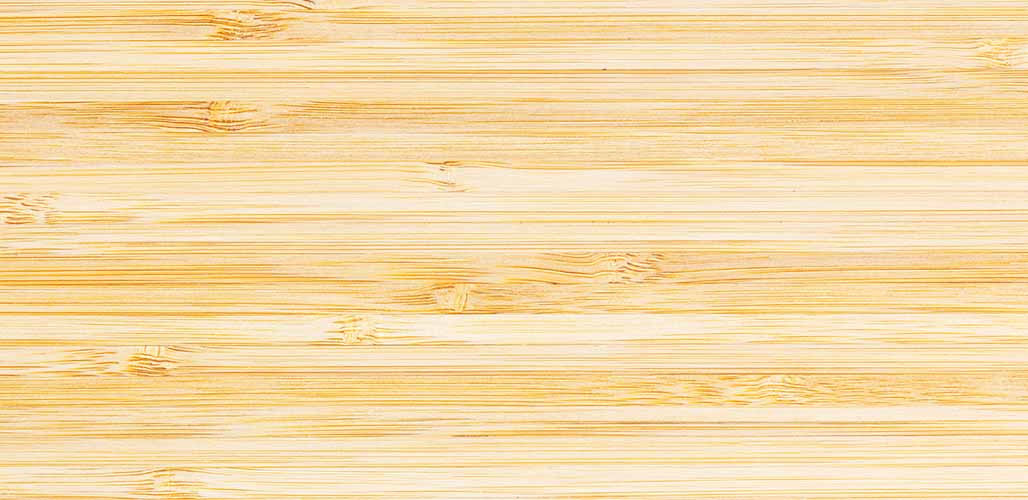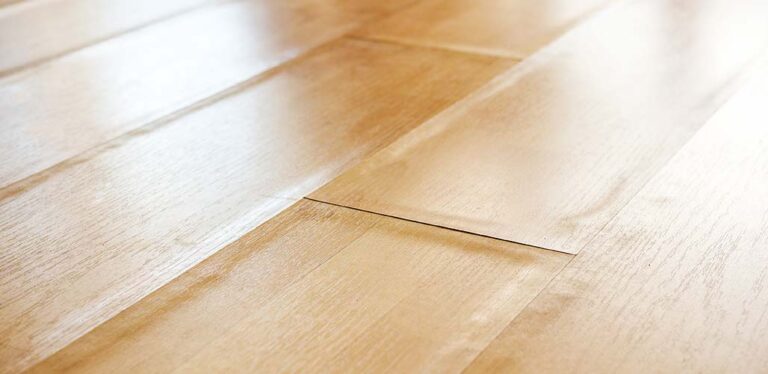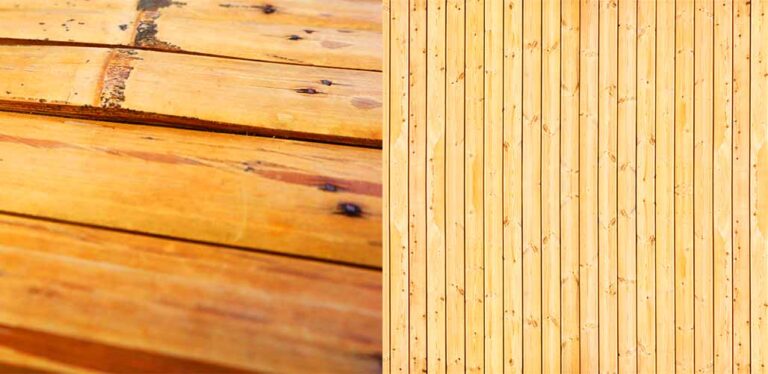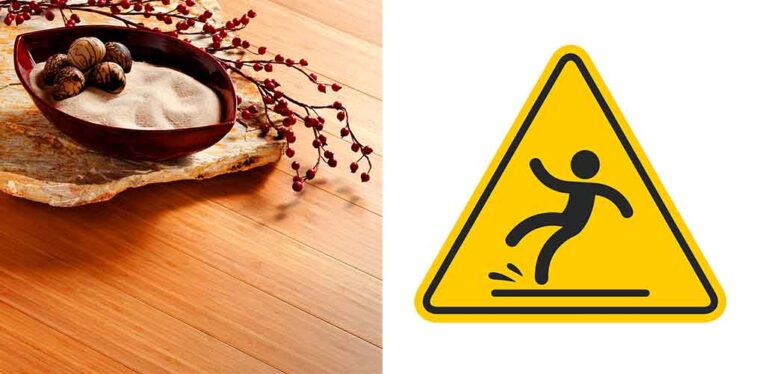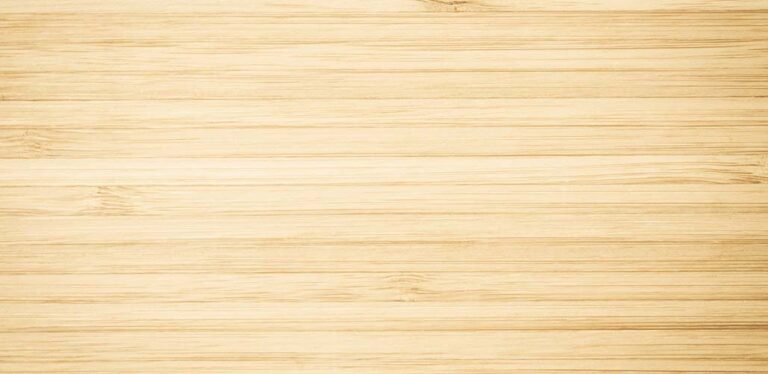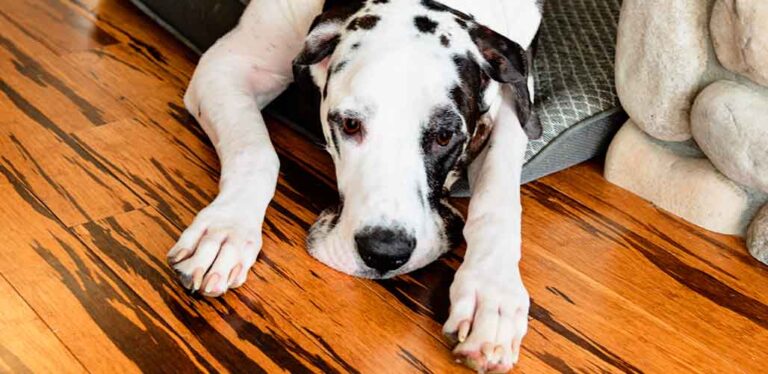Why is Bamboo Flooring Bad?
Why is bamboo flooring bad? When I was looking to redesign my home, bamboo flooring was one of the main options I considered. It has become an increasingly popular choice for many homeowners looking to make less of an impact on the world. So, naturally, it might seem like a fantastic option compared to other hardwoods that take longer to grow. But bamboo flooring does come with its downfalls which may sway your decision entirely. In this article, I’ll get into the advantages and disadvantages of bamboo floors, so you can make a balanced decision about whether this option is right for you and your home.
Contents
- Why is bamboo flooring bad?
- Prone to scratches
- Sensitive to moisture
- Low-quality bamboo floors can be toxic
- Limited styles
- The advantages of bamboo flooring
Why is Bamboo Flooring Bad?
All types of flooring have downfalls, and bamboo is no exception. There are some major disadvantages to this eco-friendly floor type, and it’s best you know what you’re in for if you do decide to opt for bamboo throughout your home. So, here are the major cons of bamboo floors:
Prone to Scratches
Bamboo flooring is a fairly durable product, but it is prone to scratches which puts a lot of people off purchasing it. Particularly people who have kids or pets in the home. However, many hardwood floors have the same easy-to-scratch issue. So if you were set on installing some type of wood flooring, you will have to deal with this problem regardless.
There are preventative measures you can put in place in order to prevent scratches, but in all honesty, scratches are inevitable. So that’s definitely something to think about if you do want wood throughout your home.
Sensitive to Moisture
Bamboo is a form of grass which means humidity and moisture affect it more than other types of flooring. If you plan to put bamboo planks in rooms that experience drastic temperature changes and humid conditions, then your flooring is likely to expand and buckle.
Dry environments, on the other hand, can make your bamboo planks shrink and crack, which is why bamboo is only really suitable for homes with stable temperatures and humidity levels.
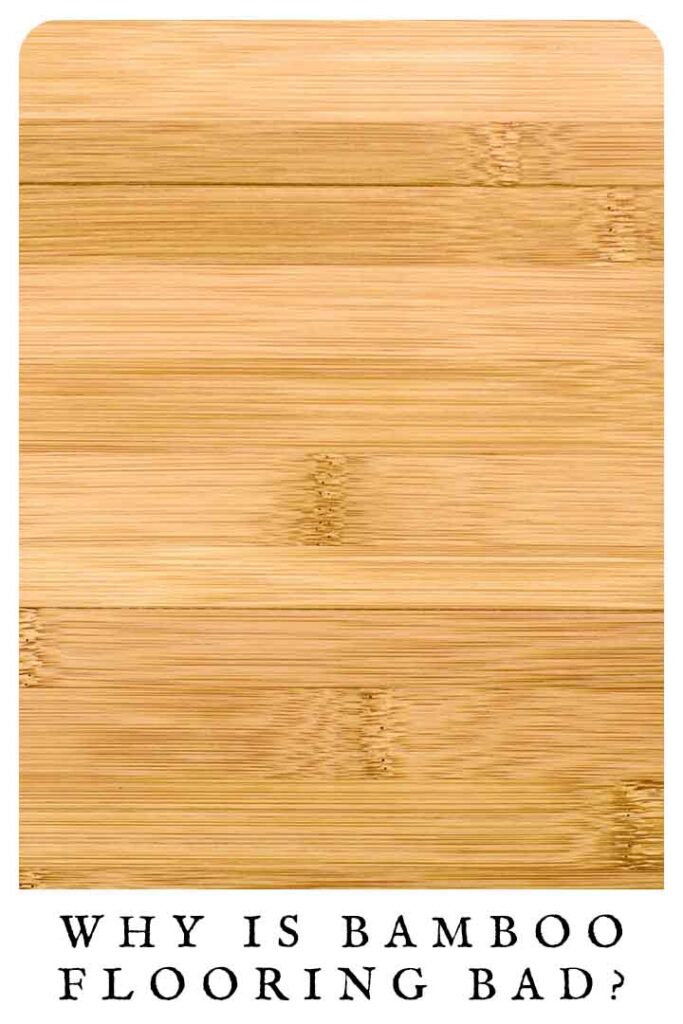
Low-Quality Bamboo Flooring Can Be Toxic
Some low-quality bamboo flooring products can contain urea-formaldehyde, which could cause irritation for certain individuals. The resin adhesive and how the company made the bamboo planks can all affect the levels of urea-formaldehyde. Although this can be an issue for sensitive people, the amount of formaldehyde in bamboo flooring is similar to engineered hardwood flooring and wouldn’t affect the average person in any way.
Limited Styles
You can purchase bamboo flooring in a selection of different colors, but the style and design is very limited and is best suited to homes with contemporary or Scandinavian aspects. The grains are also typically horizontal or vertical, which doesn’t always pair well with interior design styles.
The Advantages of Bamboo Flooring
So, now that I’ve covered why bamboo flooring is bad, I also want to mention why it is good because there are always two sides to every story.
Environmentally Friendly
As bamboo is a grass, it grows far quicker than other hardwoods like oak or hickory. Oak and hickory trees can take around 20 years to grow and mature to the point that they’re suitable for harvesting. Bamboo typically takes less than half that time, and as we cut the stalks, the bamboo can fully renew itself and continue growing with little to no help.
The Potential to Refinish
We mentioned previously that bamboo is prone to scratching, and although this is true, you can easily refinish the surface by sanding it down and applying a coat of seal. By having the option to refinish your bamboo flooring, you can keep it in amazing condition and have it looking almost brand new even after years of wear and tear.
Easy to Maintain
For the most part, bamboo floors are fairly easy to maintain as sweeping and vacuuming can remove any dirt and debris that sits on top of the surface. Occasionally you may need to cleanse your floor with a bamboo floor cleaner or a mild soap, but this isn’t a necessity.
Pest Resistant
When you think of wood floors, termites and other pesky bugs may spring to mind, but luckily with bamboo planks, you don’t have this issue. Bamboo has very few pests, and even during its growing and harvesting stages, it requires very little pesticides in order to keep the bugs away. If you suffer from allergies, then bamboo is a great option as it repels dust mites, dust, and pollen, as well being indigestible for termites.
Durable
If you have a room that receives a lot of traffic, like your entryway or living room, then bamboo flooring is a highly durable option. Bamboo naturally resists abrasions, and there are even some types, like strand woven bamboo flooring, that is even stronger.
Easy to Install
If you don’t want to spend money on installation, then bamboo flooring with its click-lock system is incredibly easy to install and doesn’t require the help of a professional. For those who aren’t DIY experts and prefer to get a professional in, however, then the job should be fairly quick and straightforward, meaning they will be in and out in no time.
Why is Bamboo Flooring Bad? Should You Choose It?
There are some notable disadvantages to bamboo flooring. Whether they sway your decision all comes down to personal preference, the climate you live in, and the style of your interior.
In my opinion, it’s always good to weigh up the good and bad in every situation, as you don’t want to purchase flooring only to realize you made a mistake. Take the time to compare the advantages to the disadvantages and see whether bamboo floors are a good fit for you.

